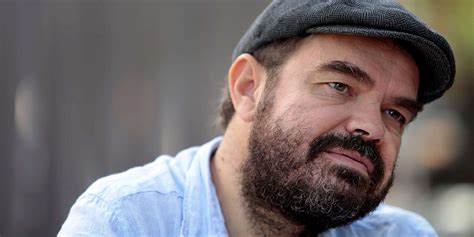Note: This piece was written during the 2023 WGA and SGA-AFTRA strikes. Without the labor of the writers and actors currently on strike, Farang being covered here wouldn’t exist.
It’s my favorite time of year! No, not Halloween or Christmas. My other favorite time! It’s Fantasia International Film Festival time! And just like always, the fest if chock full of goodies for me.
For my last interview for this year’s Fantasia International Film Festival, I was delighted to have the chance to speak to Xavier Gens, the director of one of my favorite New French Extremity films, Frontier(s). Xavier’s new film, Farang (cowritten by Xavier, Stéphane Cabel, Guillaume Lemans, and Magali Rossitto) has already been released in several countries overseas, but just had its North American premiere at the film fest. And man, it is brutal. Its unrelenting violence, fast pace, and conflicted protagonist are all trademarks of Gens’ other works.
Sam is an exemplary inmate. A few months before his release from prison, he is diligently preparing for his reintegration. During a leave, his past catches up with him and an accident leaves him only one choice: escape. Five years later, he rebuilt his life in Thailand, where he founded the family he had always dreamed of. But Narong, the local godfather, forces him to plunge into delinquency again. When Sam wants to stop everything, Narong attacks his family… Sam will cross Thailand to take revenge on his executioner.
To celebrate Farang – a Thai word for someone of European ancestry or white skin color – playing at Fantasia, I chatted with Xavier about how William Friedkin was his inspiration, filming in Thailand, what’s up next, and more!
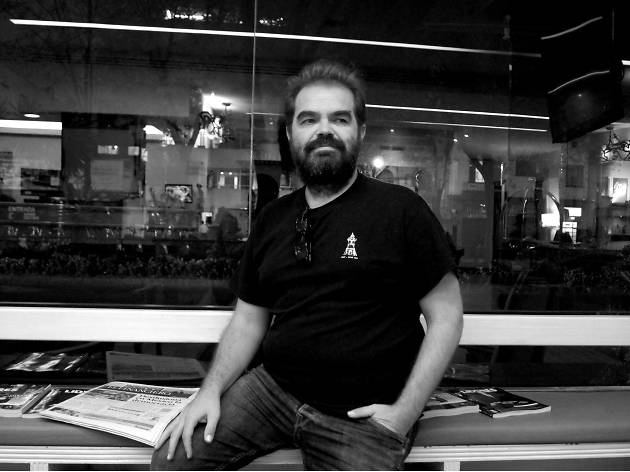
PopHorror: I really enjoyed Farang. It was brutal and I love that. I’m a huge Frontier(s) fan so I’m super excited to speak with you.
Xavier Gens: Oh, thank you so much.
PopHorror: So what inspired Farang and how did the project come about?
Xavier Gens: Basically, the project came from many ways. The first was reading newspapers and interviews about real foreigner. We have people who are trying to find a new western, a new life in East Asia. And I was reading their life and most of these people had a justice problem and they tried to reinvent themselves in Thailand, in Vietnam, in Cambodia. It’s basically that I was trying to depict East Asia as a new western. And when we were working on the script with Guillaume Lemans, we were thinking that could be a new way to develop the western.
Basically, it’s a modern western. In a way, western was exploring pioneers coming to the US and discovering new territories. And in the modern day, there are no new things to discover. But I was like, yes, there is still things to discover because if you want to reinvent yourself in a foreign country, you got to lose yourself in Asia, in Indonesia, in these territories we don’t really know, but you can become someone else over there because there’s so many people and so many things to do and create. And I wanted really to start with this, and I read many stories and the film was influenced by these many stories and many of them were very nice and happened very well. But many were people who were finishing in jail, they were on drugs. They were trying to do some traffics and it was like real gangsters, as we can see bad guys in western. So I was like, oh, that could be nice to take this kind of real subject and put it into a story. As well, the intention was really to create something a little bit like Sorcerer, the William Friedkin movie, because I’m a huge fan of Bill Friedkin and we lose him two days ago. So I was super sad. So the main influence of the film was really the way he structured Sorcerer. In Sorcerer – I’m getting emotional just thinking about it – but there was that moment when he started to develop his characters in the first act and Friedkin was always creating a strong first act. And for Farang, I was like, “No, no guys, I don’t want to be like American movies. I want to be like Friedkin will do this film.” He will develop his character for 10, 15, even 30 minutes to tell the story of this character in France. What is the back story of the character? And basically show the backstory, film that backstory. And for me that was super important to show that on the structural way. And then there is the transition when we move to Thailand, he’s obliged to leave. And the way the movie starts after the opening title, it’s really influenced by Sorcerer.
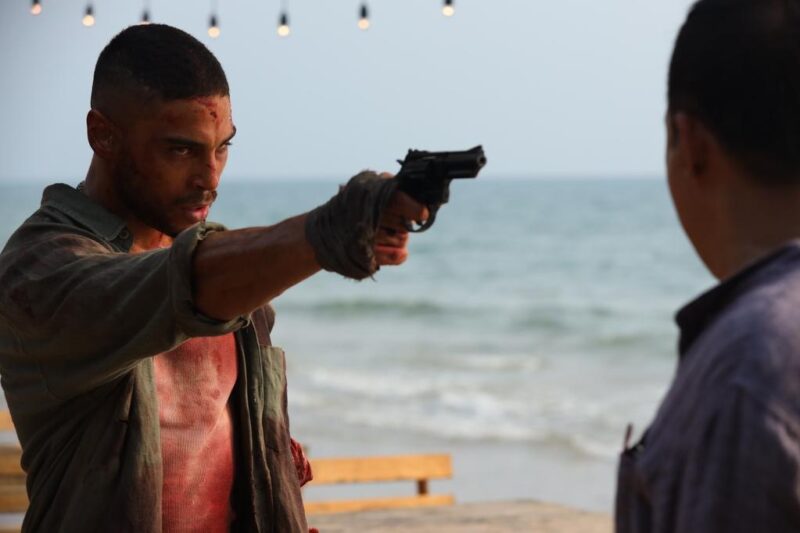
In Sorcerer, when they arrive in South America, the first shot is on the lizard going on the tent. And for me it was like let’s start with a crab crawling on a fishing net. And, slowly bit by bit, we’re going to show a village awaking in that new country. We don’t know where we are and then we realize we’re in Thailand and understand our character has left France to reinvent himself. And that was really my tribute to Friedkin because, as I say, I love him so much and I was lucky enough to be able to express myself like this on this film. Also the other influence was Rossellini – Italian neorealism – because when I was reading his biography, he was talking about his love for Italian cinema and neorealism. Bill Friedkin was really coming from documentary. He did that fantastic documentary about death sentence, the way that documentary save life. And he was talking about the way he was working as well on The French Connection with these two cops, he was still doing interviews, so he really had the same approach of filmmaking as Rossellini when he was doing neorealism. And I was like, “Oh, that will be fantastic if we can nail this.” And I start working and rewatching a lot of Italian neorealism film, and I saw this movie, Stromboli, with Ingrid Bergman. On that film, there is that moment when she’s at the immigration office and she’s talking about her backstory and she’s always acting in front of real people, non-professional actor. And that was one of the ways we wanted to develop Farang in the beginning when Sam is going out of jail and the guy giving him his paper is a real guy from the prison. So we were in that documentary approach to really nail the authenticity of the situations, the same as the land register office in the film at some point. And that scene is really in the same way as Italian neorealism. I wanted to nail that because, and again about Friedkin, when you look at William Friedkin movies, we are fascinated because the stories are fantastic, but it’s so grounded in reality because it’s coming from his documentary background. And why The Exorcist is the most scary movie of all time. It’s because it’s so authentic, it’s so real, because you believe in everything in that film. Nothing is eye candy. Everything is so real and authentic. And I wanted to nail that authenticity he was talking about to really push the audience into that martial arts film, to start by this authenticity and realism and slowly becoming more baroque and action oriented because, like that, you totally buy the action, and you believe in everything you can see on screen because we have put the audience into a very authentic and real environment. And that was my main intention in that film.
PopHorror: I really like that. And perfect timing for it to play now at Fantasia with Friedkin passing, like your tribute to him playing now. It’s just perfect timing there. The scenery is breathtaking. What was it like filming in Thailand?
Xavier Gens: It was really special because when we arrive over there, we were in COVID. So we have specific rules. We cannot go outside. We were very under surveillance, but we have an amazing crew. And for me it was important to find places nobody had seen before. Thailand has been shot by many movies. We always see the same kind of big mountain, beautiful beach. I said, “No, I don’t want to go there. I want to go in a place where someone can really hide themselves.” And I looked first on Google Maps. I was looking at the map of Thailand and I saw there is a swampy area near the border of Cambodia. And that’s exactly where we went to scout and we find that beautiful village of Bang Saen, which is totally uncharted and far from everywhere. And I was like, “Okay, my character, if he has to hide himself, he will go there and he will become a fisherman like these guys.” And nobody has filmed this village before. This is the first time we saw it on a movie. So it was really great to scout there, be able to shoot there and really show new places we don’t see that often.
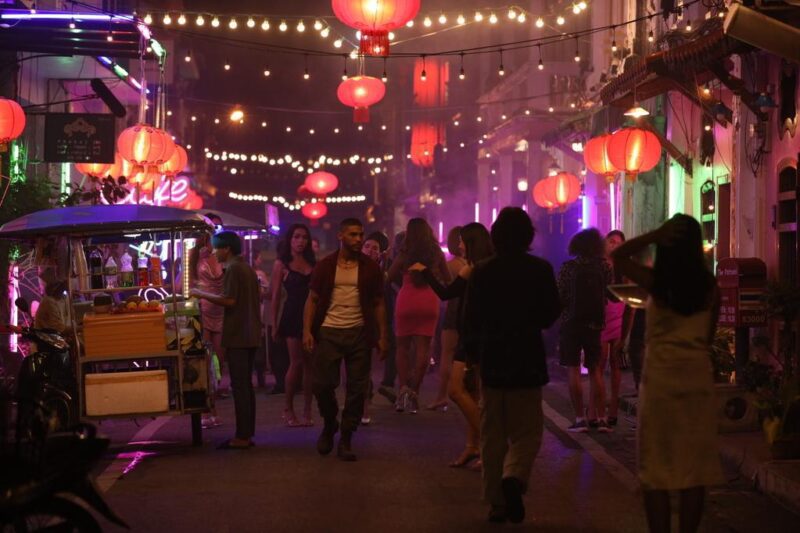
Then we went to Bangkok for the finale of the film, and Bangkok was really a place where many movies had been shot there but I wanted to avoid the postal card. I really wanted to go in the underground territories showing the dirtiness of it. For me, it was super important to push the audience into that authenticity. And when we arrived in Thailand, same thing. We were wearing camera on head, and we went into the streets just with one camera and the actors, and I was telling them, “Go to find Narong (Olivier Gourmet). I don’t give you any tips and you look for a place where you can find him.” And they were by themselves and with a very small crew, we shoot a lot of beats by them going into the street looking for the place where they’re supposed to go. And that was great because I had that authenticity I really wanted to nail the finale.
PopHorror: Your lead actor, Nassim Lyes, is an MMA fighter and a kickboxing champion. So this was a perfect role for him. How did your paths cross?
Xavier Gens: Basically via Instagram. He contacted me on Instagram. So I answered him, and we had a friend in common. He worked with Pascal Laugier on a TV show, and he worked as well on a movie by Alexandre Bustillo and Julien Maury called Kandisha. And they are my friend and were talking to me about him, so that’s why I put them into the film. There is a cameo with Pascal, Julien, and Alexandre. We can see them at the beginning of the film. And I really wanted to test Nassim for the action. So I sent him to my action designer, Jude Poyer, and Jude made an action assessment with him and he told me he can do many things and Nassim is very strong. He really wants to work his ass off. So he tried to do a maximum of things. He really focused and he really worked out to get in shape and to be able to do all the things he’s doing. So what I really appreciate with him, he’s not only a physical actor because this is a work he’s doing by himself to get that body, but he’s also someone very clever. He’s always working the character, he always work on the intention. And I think he’s a fantastic actor and I love him so much. We already did a new movie and we just wrapped months ago.
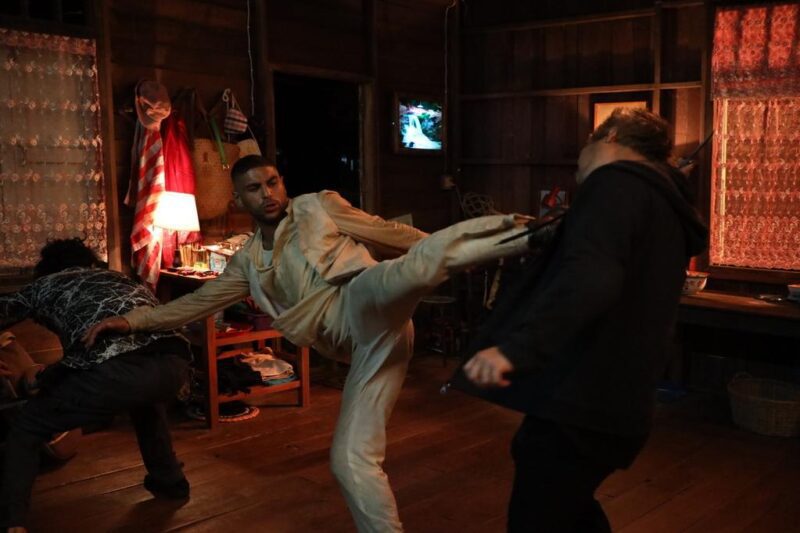
PopHorror: I read about that online that you guys were working together again. So that’s really amazing. And speaking of that, what is up next for you?
Xavier Gens: My next project is a shark movie set up in Paris for Netflix. It’s a very crazy film. I will say it’s an ecological fable about human beings and nature.
PopHorror: I’m super excited. I’m a big fan so I love seeing new stuff come up. I have just one last question for you today. What is your favorite scary movie?
Xavier Gens: My favorite scary movie is the T-shirt you got.
PopHorror: The Exorcist! Great answer.
Xavier Gens: Of course. It’s the one and only for me.
PopHorror: That’s a good one. You know what? It scared me the first time I saw it when I was 13 and it still scares me at 42. So it definitely does its job.
Xavier Gens: I’m still scared about it, and I saw it far too young, probably seven or eight years, and I couldn’t sleep for months. And my parents were like… because as soon as I was falling asleep, I was scared to be possessed by the demon. So I was so, so scared by that movie because it touched invisible turf and invisible belief. And demons can be everywhere, and I was so scared of this. And still today, I’m super scared about this.
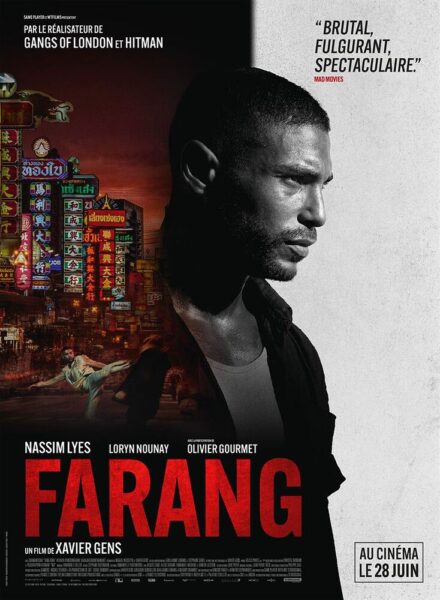
Thank you so much to Xavier for taking the time to speak with us. Farang will be coming to the US sometime in 2024.
 PopHorror Let's Get Scared
PopHorror Let's Get Scared
